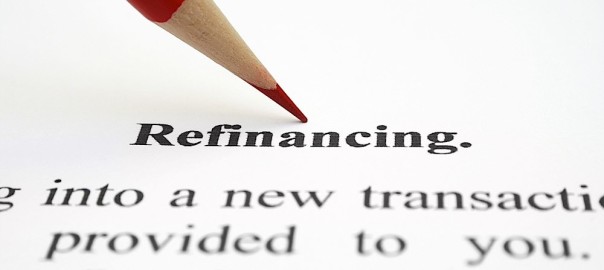Is Now A Good Time To Refinance?
By Paul Esajian on February 24, 2016
Mortgage interest rates have taken a roller coaster ride over the past few weeks. Just when it appeared that rates would climb to two year highs the market shifted in the opposite direction. Interest rates continue to fall and have again crept near historic levels. This presents homeowners, and real estate investors, with an opportunity to refinance their mortgage. As appealing as a lower rate may appear it doesn’t always make sense. There are several other factors you need to consider before making the commitment to refinance. If you are on the fence and are thinking about lowering your rate here are a few things you need to consider.
- Long term strategy. Everybody wants the best deal possible. If your rate is 3.5% and your neighbor tells you that they just closed at 3.25% you will want a lower rate. When it comes to refinancing you need to consider your long term goals and strategy before you do anything else. As many advantages that refinancing offers there are a few notable downsides. Between the increase in loan amount and the additional number of years added to the loan a lower payment may not make the most sense. If you have a rental property you need to think about how long you plan on keeping the property for. If are considering selling in the next few years you should hold off on the refinance. You are essentially wasting the money spent on closing costs, property taxes and fees. If your goal is to own the property outright you want the loan with the shortest term. A new 30 year term may give you the lowest payment but it doesn’t match your long term goals. Prior to running any numbers and looking at rates think about what you really want out of the property. Sometimes the best deal may not make sense for what you are trying to do.
- Years on mortgage. There are currently mortgage term options for any number of years you desire. If you want a 23 year mortgage you can probably find a lender that will accommodate you. Gone are the days of the only having a 15, 20 or 30 year fixed rate term. One of the reasons they did this is because many borrowers were stuck deciding between payment and term. Take a look at how many years you have left on your mortgage. If you are in your first five years of a 30 year term refinancing to a lower rate makes the most sense. You are only adding on a few years to the mortgage and can recoup the closing costs in a few years’ time. If you are under twenty years left you have a decision to make. An option that few homeowners consider is reducing the term and expediting the time you will own the property free and clear. This comes at an increase in monthly payment but wipes away tens of thousands in interest payments. Going from 19 years to 30 will probably save you hundreds of dollars a month but adds 11 years to your loan. If you are young enough and use the surplus cash wisely this can be a smart move. The best option is to look at how many years you have left and see refinancing to this exact term saves you money.
- Impact of rate. The greater your mortgage balance the smaller the change in rate needs to be to make an impact. If you have a million dollar loan every eight of a point can equal over a hundred dollars a month. Conversely if your loan is $100,000 you would need the change in rate to be over a point lower to feel any impact. With most refinances you combine your current amount owed in addition to the closing costs and prepaid property taxes to determine your new loan amount. You always have the option of bringing these funds to the closing but few homeowners ever do. These costs will add thousands of dollars to your loan and further impact how much your rate needs to change. Once you factor in the new loan amount you can only end up saving under $100 a month by lowering your rate a full point. A lower rate may sound nice at your next dinner party but should not be the only reason you look into refinancing.
- Investment property guidelines. Refinancing an investment property is one of the most difficult loans to close. Investment properties are considered a greater risk factor with difficult guidelines reflecting this. Not only do you need strong credit scores, low debt to income ratios but you need at least 25% equity. You may also need to show six months of mortgage payment in reserves as well as perfect mortgage payment history. You may also be capped at the number of units you are allowed to refinance. There are many lenders who will not refinance three and four unit properties. One of the biggest hurdles is with the appraised value. The value is determined by an independent appraisal often times without prior knowledge of the market. This leads to values coming in low and a large number of refinances falling by the wayside. The process will be filled with much more paperwork than you may have had when you closed and even when you are approved you are not out of the woods.
With the right refinance you can save money every month or knock years of interest payments off your mortgage. Interest rates may have come down but before you think about refinancing there are a few things you should consider.